What is revenue management, and why does it matter so much to hospitality brands? Essentially, it’s a data-driven approach to anticipating demand and adjusting pricing and distribution in order to maximize earnings.
Revenue management is crucial for hotels and similar businesses because they have fixed costs to contend with. When hotels are able to accurately forecast demand, they can take steps to ensure these fixed costs are always covered.
In this article, you’ll learn what revenue management is, why it matters, and how to achieve success.
Table of Contents:
- Defining Revenue Management
- Why is Revenue Management Important?
- Revenue Management vs. Yield Management
- Understanding Forecasting
- Important Forecasting Tips
- Top Revenue Management Strategies
- The Main Revenue Management KPIs
- Key Revenue Management Pricing Strategies
- Additional Hotel Revenue Management Tips
- Revenue Management Growth Opportunities in Hotels Through 2035
- Check Out Hotel Revenue Management Courses
- What is Revenue Management in Relation to Open Pricing?
- What is a Revenue Management System?
- Essential Revenue Management System Features
- What is Total Revenue Management?
- The Latest Hotel Revenue Management Strategies, Tactics, Trends and Tips
- The Latest Hotel Marketing Strategies, Tactics, Trends and Tips
Defining Revenue Management
To understand revenue management, we must first define it. Within the hotel industry, the widely accepted definition is:
“Selling the right room, to the right client, at the right moment, for the right price, through the right distribution channel, with the best cost efficiency”.
It involves using performance data and analytics, which help hotel owners more accurately predict demand and other consumer behaviors. This, in turn, allows them to make more sensible decisions regarding pricing and distribution to maximize revenue and profit.
According to the Duetto Revenue Management Trends & Predictions Survey, hoteliers rank revenue management 4.8 out of 5 in terms of importance to their business in 2024, up from 4.4 out of 5 in 2023.
As a concept, revenue management began in the airline industry, where companies found ways to anticipate consumer demand to introduce dynamic pricing. However, it is applicable in any industry where different customers are willing to pay different prices for the same product, where there is only a certain amount of that product to be sold, and where that product must be sold before a certain point.
To carry out effective revenue management, a business must also have some way of forecasting demand and consumer spending habits to make informed adjustments. For instance, hotels can use past data, existing bookings, weather forecasts, and other industry data to inform their revenue management strategy.
Why Is Revenue Management Important?
For hotel owners, hotel revenue management provides the ability to make the most out of a perishable inventory of hotel rooms, allowing them to maximize the amount of money the business generates. It allows decision-makers to make informed, data-driven choices rather than relying on instincts or guesswork.
Like many other businesses, hotels have fixed costs, which need to be paid regardless of how many rooms are sold and how much money is generated from guests. Therefore, through a revenue management strategy, hotel owners can ensure their costs are met, and their prices and services are dynamically optimized.
According to the American Hotel & Lodging Association’s State of the Industry report, hotels face rising operational costs that outpaced revenue growth in 2024. This report makes strategic revenue optimization more important than ever.
Revenue Management vs. Yield Management
Under President Robert Crandall in the 1980s, American Airlines introduced “yield management,“ a strategy that adjusted prices based on booking timing and included overbooking practices. Crandall reported that this approach helped the airline earn an additional $500 million annually.
Robert Crandall, former chairman and CEO of American Airlines, gave yield management its name and has called it,
“the single most important technical development in transportation management since we entered deregulation“.
Within the hotel industry, revenue and yield management are two of the most useful tools available to managers, allowing them to maximize the money they make from guests. Although the two concepts are closely linked and share a lot of similarities, there are some important differences, too.
To provide an example concerning the hospitality sector, yield management would be concerned with the sale of a hotel room, whereas revenue management may take into account the full implications, including areas of secondary spending and the cost involved in actually selling the room in the first place.
For more detailed information about yield management, please also read the article “What is Yield Management?”.
Table: Comparison Between Revenue Management & Yield Management
| Aspects | Revenue Management | Yield Management |
|---|---|---|
| Focus | Maximizing overall hotel revenue across all revenue streams and guest segments. | Maximizing revenue per available room (RevPAR) by adjusting prices based on demand. |
| Pricing Strategy | Utilizes dynamic pricing that may change based on historical data, competition, and market conditions. | Implements dynamic pricing strategies that respond to immediate and short-term demand fluctuations. |
| Inventory Control | Manages inventory for various hotel services, including rooms and ancillary services like dining, spa, and events. | Primarily focuses on managing room inventory and availability. |
Video “What Is Revenue Management?”
Understanding Forecasting
Forecasting is an important concept to get to grips with when trying to answer the question: what is revenue management? In simple terms, forecasting is a means of using past data, present data, and the analysis of trends in order to make future predictions. This then allows you to anticipate future conditions and events.
For those involved with hotel management, forecasting has a useful role to play because it makes it easier to plan for the future and make more informed strategic decisions. Additionally, it can help you maximize the amount of revenue generated from a perishable inventory because you can predict demand levels ahead of time.
Important Forecasting Tips
Below, you will find a breakdown of some of the best tips to remember when using forecasting as part of a hotel revenue management strategy, complete with explanations of why those tips matter.
Use Segment-Based Demand Forecasting
Advanced forecasting strategies focus on customer segmentation to predict demand patterns across different market segments. For example, McKinsey’s report shows that Gen Z and millennials book differently than older travelers. Business guests often book last-minute, while leisure travelers book earlier. By analyzing things like booking times, cancellation rates, and price sensitivity by segment, hotels can adjust prices for each group. This leads to smarter pricing, better room management, and higher revenue from a balanced mix of guests.
As Dr. Cindy Heo, Associate Professor of Revenue Management at EHL, explains,
“Demand forecasting plays a critical role in revenue management by providing data-driven insights into future customer behavior. Accurate forecasts allow hoteliers to set the right room rates, optimize inventory, and improve operational planning—all of which enhance revenue and guest satisfaction.”
Keep Accurate Records
The answer to the question ‘What is revenue management?’ centers on selling the right product to the right customer at the right time via the right channel for the right price at the lowest cost to you. Doing this involves using the information that is available to you, and that, in turn, means it is crucial to keep accurate records. According to HSMAI (Hospitality Sales and Marketing Association International), 72% of hotel managers reported that inaccurate forecasts led to pricing issues and missed revenue opportunities. This underscores the need for robust forecasting systems that use both machine learning and human expertise. In particular, you need to track occupancy rates, revenue, room rates, and other KPIs covered later in this article.
Make Use of Historical Data
Most forecasts rely heavily on past data and the assumption that historical trends may repeat themselves, and this is especially true with hotel revenue management. According to STR’s hotel forecasting research, “historical data impacts decisions for almost every role in the hotel industry”. As an example, you may notice when looking at your data that you experience a decline in demand from September to December or that your busiest months are usually in the summer. This information can be used to make reasonable predictions about what will happen to demand in the future.
Implement AI-Driven Predictive Analytics
AI-powered forecasting is helping hotels move beyond just using past data to predict bookings. They allow revenue managers to proactively adjust pricing strategies and optimize inventory allocation for maximum profitability. The role of AI has made forecasting more accurate. A study published in Current Issues in Tourism showed machine learning models cut forecast error by up to 54% for next-day predictions and 45% for two-week forecasts compared to basic statistical methods. According to Skift, tools like Capgemini’s ElevateRM use artificial intelligence to analyze real-time data, including market trends, competitor prices, and even the weather.

Heiko Rieder, Senior Vice President Commercial & Distribution, Step Partners Europe GmbH“In a nutshell, Artificial Intelligence will lead to even greater automation and sophistication in Revenue Management, allowing Revenue Managers more time to focus on interpreting data insights, developing innovative strategies, and experimenting with data they may not have had the time to review thoroughly. There are many examples where AI usage has a direct correlation to improving a hotel’s top line, for example, from e-commerce or guest satisfaction sources, but I find these are often underused. As AI continues to evolve, Revenue Management roles may evolve as well.” Click here to learn the impact of Artificial intelligence on revenue management systems and roles from our Expert Panel. |
Utilize Data Already in the Books
Generally, one of the most important assets you have for forecasting and hotel revenue management is data already in the books. This will typically mean rooms that have already been booked, as well as any events, functions, or meals that have already been scheduled. STR’s forecasting study shows that properties using “business on the books” data alongside historical patterns achieve 15-20% better forecasting accuracy than those relying solely on historical trends. However, you can also go beyond this and look at your website analytics and social media data. Remember, data in the books is some of your most certain information.
Take Events and Holidays Into Account
Your forecasting efforts factor in events and holidays and those relevant adjustments must be made with these in mind. For instance, if you use historical data to forecast a certain level of demand but overlook that a major sporting event is happening in the area, your forecast may be off. Similarly, current hotel trends may be either positively or negatively disrupted by holidays such as Christmas, Easter, Ramadan, and Thanksgiving. PwC’s Hospitality Directions report specifically mentions how “global events like the FIFA World Cup could increase hotels’ revenue” in 2026. This report shows the measurable impact of major events on hotel demand forecasting.
More Forecasting Tips
There are a number of additional tips that can help you improve your forecasting and come to understand what revenue management is all about. These include maintaining awareness of competitors and breaking down your forecasts into different segments so that you can be more specific with your predictions. You can read more about these tips and how they can help you in the “Forecasting Tips to Improve Your Revenue Management Strategy” article.
Top Revenue Management Strategies
With the global hotel revenue management system market projected to grow at 8.7% CAGR through 2028, hotels that are implementing sophisticated revenue strategies gain significant competitive advantages.
In this section, you can find useful details about some of the main revenue management strategies available. Each of these strategies can help you to achieve better financial results.
Get to Know the Hotel Market
One of the most important strategies you can adopt for your hotel revenue management efforts is to focus on the market. What is your target audience? Where are they based? What are their needs, wants, and expectations? What is the competition like? Which local factors may influence levels of demand over time? How does demand change as the seasons change? Getting to know the market is vital for making informed decisions.
SiS International’s Hotel Market Research study shows that “hotel market research plays a critical role in the decision-making process of companies in the hospitality industry” and “allows companies to customize their existing products and services more effectively to address the unique requirements of their target audiences.”
EHL Professor Dr. Stefan Güldenberg states:
“Knowing the strengths and weaknesses of your competitors compared to your own is an important part of strategic management and organizational learning. Regular competitor analysis helps you to clarify or update your hotel strategy and to respond effectively to a constantly changing environment.”
Segmentation and Price Optimization
Price optimization is a major factor in any good answer to the question: what is revenue management? One possible way to achieve this is through segmentation, where you divide your customer base into different ‘types‘, look at their behaviors and booking habits, and then attempt to optimize pricing for each segment. For instance, you might charge business customers lower room rates because you know you can recoup the money via their use of corporate facilities. According to IHG’s market segmentation analysis published in Hotelier Magazine, “segmentation enables hotel owners to tailor offerings to different groups and expand their revenue capture potential.”
Nooshi Akhavan, Director of Revenue Performance & Distribution at Coast Hotels, notes the transformation:
“Twenty years ago, there were just four segments: transient guest (business and leisure weren’t divided then), group guest, tour and wholesale, and crew. Today, I’ve seen hotel brands that have 18 market segments.”
Align Your Different Departments
Next, you need to think about how you can help the different departments within your hotel to collaborate and work towards the same goals. 4Hoteliers reports that when revenue and marketing teams collaborate, hotels have seen revenue increases of more than 6%, along with boosted market share and stronger performance in shoulder and low-demand periods. To do this, you must bring the major decision-makers within each department on board by explaining what revenue management is and why it is important. Work with them to adjust their existing strategies, if necessary, and ensure their record-keeping is up to scratch, too.
Select the Best Pricing Strategy
A key part of successful revenue management is selecting the right pricing strategy for the right moment. In times of high demand, it may make sense to charge more for your hotel rooms because the demand will ensure you still fill them, whereas when demand is low, a discount pricing strategy could ensure you can sell rooms that would otherwise be left empty.
A peer-reviewed study available via PubMed Central (PMC) highlights that hotels using competitive pricing approaches see higher guest retention. The research, titled “Analyzing the Relationship Between Pricing Strategy and Customer Retention in Hotels”, found that improving customer retention by just 5% can increase profits by 20% to 90%. So, ensure there is logic to your strategy and maintain the flexibility to make adjustments.
Incentives For Direct Bookings
Direct bookings can be extremely beneficial for hotel revenue management because hotels take in all the money guests spend on their bookings. By contrast, while online travel agents allow hotels to reach a wider audience, they charge hotels a commission or listing fee. According to the Expedia Media Solutions study, travelers visit approximately 38 websites before making a hotel booking. With this in mind, you should offer a loyalty program, free extras, and other incentives to encourage as many customers as possible to book directly.
Jan Freitag, National Director of Hospitality Analytics at CoStar Group, explains it best when he says:
“An interesting word there – book direct. I think that is critical for the hotel. I don’t want you to come from any other channel. I want you to come to me directly, and then I’m willing to value that loyalty.”
Ancillary Revenue Strategy
An ancillary revenue strategy is based on generating revenue from additional services and products, away from the sale of hotel rooms. For example, you might have a hotel gift shop that sells branded products, or you might offer a wide range of facilities for guests to make use of. Your ancillary services can improve the overall guest experience in your hotel while simultaneously increasing and diversifying your revenue.
Data from hospitality market research shows that hotels can generate over 18% of their total revenue from ancillary services. For example, CBRE data shows U.S. hotel spas grew spa revenue per available room (PAR) by 12.6% from 2018 to 2022, with resort spas rising by 14.2%.
When exploring ‘what is revenue management?’, the focus is typically on optimizing room sales. However, ancillary services are often not subject to third-party commission fees, which can make them ideal for maximizing earnings. That said, it is important to set prices sensibly based on demand and available data.

Pablo Torres, Hotel Consultant, TSA Solutions“Consider the entire customer journey. From the moment the guest books, we must try to engage with them to make sure their stay is personalized to the maximum, which should mean better service, a happier guest and more revenue for the property. From pre-arrival engagement (early check-in, special amenities, parking, transfer), to in-stay (upsell, cross-sell services from other departments), to departure (late check-out, transfer, picnic, follow up, discounts for next booking), it´s a cycle with many opportunities. One of my resort clients has recently appointed a “Pre-arrival Manager” specifically to improve that relation between booking time and arrival, thereby avoiding cancellations, disappointment and generally improving the guest experience = revenue generated.” Click here to learn how hotels can reach their ancillary revenue management potetnial from our Expert Panel. |
Extra Revenue Management Strategies
On top of the strategies mentioned, various other options are available to help improve your revenue management strategy. These include things like utilizing search engine optimization to boost visibility and attract more customers and working with a freelance revenue manager, who may be able to offer fresh perspectives. You can read more about these tips in the “Revenue Management Strategies to Grow Your Hotel Business” post.
Video: Top 10 Tips for Successful Hotel Revenue Management
The Main Revenue Management KPIs
Effective hotel revenue management relies on tracking key performance indicators or KPIs. You can use software and other hotel technology solutions to track these, but first, it is important to understand them truly.
RevPAR
RevPAR is one of the most widely used KPIs for hotel revenue management purposes, and it stands for revenue per available room. This metric tells you the amount of revenue that is being generated per room, irrespective of whether those rooms are occupied. According to Oxford Economics’ analysis for AHLA, hotel RevPAR is expected to rise by 2.58% to a record $102.78 in 2025.
RevPAR = Room Revenue Earned / Total Number of Available Rooms
For more information, read “What is RevPAR?”
GOPPAR
GOPPAR is an acronym for gross operating profit per available room. It is a metric that takes into account all of the available rooms in the hotel, regardless of whether they are occupied by paying guests. It also factors in various revenue streams and expenses, giving you a good idea of overall financial performance. According to profit-and-loss data from CoStar’s STR division, the U.S. hotel industry reported a GOPPAR of $73.60 in 2024. This figure represents a 3.2% increase compared to 2023, indicating steady growth in hotel profitability.
GOPPAR = Gross Operating Profit / Number of Rooms in Hotel
You can read more in the article “What is GOPPAR?”
TRevPAR
TRevPAR is a key performance indicator that is focused solely on revenue coming in. It stands for total revenue per available room and, like GOPPAR, is not concerned with whether or not a room is occupied, only that it is available. It also considers all money from rooms, including room service, food, and other services.
TRevPAR = Total Revenue / Number of Rooms in Hotel
You can read more in the article “What is TRevPAR?”
In an interview, Pablo Alonso, CEO of HotStats, emphasized the importance of key performance metrics in hotel revenue management. He stated,
“There may not be one holy grail key performance indicator (KPI), but TRevPAR and GOPPAR are two metrics that should be on every hotelier’s radar when it comes to driving revenue and profitability. TRevPAR measures the property’s ability to generate revenue across all operating departments and provides insight into the overall revenue story.”
Average Daily Rate (ADR)
The average daily rate KPI tells a hotel the average amount it makes in rental income per occupied room. It only considers rooms that are occupied through paid bookings, so it will not include empty rooms or rooms occupied by staff. It is a crucial metric for understanding how much money you are making, on average, from each room you sell.
According to AHLA’s State of the Hotel Industry Report, the average daily rate (ADR) for U.S. hotels in 2024 was reported to be $159.00. ADR is likely to rise again in 2025 to a new high of $162.16, exceeding the 2024 rate by 1.99%.
ADR = Room Revenue Earned / Total Number of Rooms Sold
NRevPAR
Net revenue per available room, or NRevPAR, is concerned only with revenue generated from room sales, meaning other revenue sources are ignored. Again, it focuses on available rooms rather than occupied rooms. However, prior to dividing room revenue by the number of rooms available, you deduct distribution costs to calculate ‘net revenue’.
NRevPAR = (Room Revenue – Distribution Costs) / Number of Rooms in Hotel
You can read more in the article “What is NRevPAR?”
ARPA
Developed by industry expert Ira Vouk in 2015, ARPA, or average revenue per account, is a KPI that can help you determine how valuable customers are. It is concerned with the average amount of revenue generated per customer account over a specified period of time, typically monthly or annually. You can also use this to compare past data and see the comparative value of new customers.
ARPA = Recurring Revenue / Total Number of Customer Accounts
You can read more in the article “What is ARPA?”
EBITDA
The EBITDA KPI stands for earnings before interest, taxes, depreciation, and amortization. It can help to indicate your hotel’s overall revenue-generating performance while removing the variables that may otherwise distort your results. This makes it easier to compare your hotel to other hotels or chains of your own hotel brand without the results being thrown off by things like tax rates varying across different countries.
EBITDA = Total Revenue – Expenses (not including interest, taxes, depreciation, and amortization)
You can read more in the article “What is EBITDA?”
All Revenue Management KPIs
Several other KPIs are useful for hotel revenue management, including average daily rate (ADR) and revenue per available room (RevPAR). It is beneficial to learn about as many of these as possible so that you can track them within your hotel and enhance your revenue management efforts. You can learn more by reading the article “The Most Used Revenue Management KPIs for Hotels”.
Key Revenue Management Pricing Strategies
Any explanation of revenue management will reference price, and you will need to select the right pricing strategy for the right situation to bring in as much money as possible. Below, you can learn about some of the common pricing strategies hotels and resorts use.
Personalized Pricing and Hyper-Segmentation
Personalized pricing uses artificial intelligence and data analysis to offer prices based on each guest’s booking habits and preferences. Hotels can spot guests who are willing to pay more for certain rooms or services while also giving discounts to more budget-focused guests. This approach combines data from loyalty programs, direct bookings, and third-party sites. For example, Hyatt partnered with Amazon Web Services to make personalized recommendations for customers, such as suggesting specific hotels that matched their interests or selling add-ons like spa visits. This strategy helped Hyatt boost its revenue by nearly $40 million within just six months.
SriHari Thotapalli, Director, Customer Data Management, Hyatt Hotels.
“Data is what makes it possible for Hyatt colleagues to provide a personalized experience that guests do not forget. Thanks to the relationship with Informatica, Hyatt can relate the data together and give colleagues the means to act on it across all Hyatt hotels worldwide.”
Length of Stay Strategy (LOS)
As the name indicates, a length-of-stay strategy is a strategy where the pricing varies depending on the time a guest stays in the hotel. This can work in several ways, but one of the most common is charging a lower overall rate for longer stays booked during low-demand periods. This can help to encourage guests to book longer visits, which means your hotel brings in more money from them overall while they get better value for their money.
According to a global study by OTA Insights, which surveyed over 50,000 hotels, 63% of hotels rarely offer LOS discounts. This finding surprised many industry experts.
Gino Engels, Chief Commercial Officer at OTA Insight, noted:
“These are large, international chains, using sophisticated tools to present up-to-date rate information to their guests, 30-plus days in advance. This makes it all the more surprising that nearly two-thirds of the hotels we looked at don’t apply length-of-stay discounting at all.”
Up-Selling
Up-selling is a strategy where you attempt to get customers to spend more on the products or services they buy than they initially intended, and it can work extremely well in hotels. For example, you may be able to get customers to upgrade to a room with a better view or to a room with a larger bed. Up-selling can be attempted during the booking process and in any post-booking communication with customers.
Cross-Selling
Cross-selling is similar to up-selling in that you attempt to get customers to spend more money; however, this time, it is achieved by convincing them to make additional purchases on top of what they originally intended. For instance, this could mean persuading them to pay for breakfasts and their room or selling additional products or services, such as travel passes, gym access, or tickets to local attractions.
Cancellation Policy
It is also important to understand that your cancellation policy can factor into pricing. For instance, some hotels charge lower rates than they otherwise would because customers give up their right to a refund if they cancel their booking. By the same token, you might also charge a higher rate for your room than you otherwise would but offer greater flexibility or leeway on cancellations and refunds. The Family Travel Association (FTA) Survey found that 49% of parents intend to pay closer attention to cancellation and refund policies when planning their trips.
More Pricing Strategies
Aside from those mentioned, there are various other pricing strategies available, too, including price per segment, rate parity, forecast-based pricing, and discounted direct bookings. You can learn much more about these different strategies, what they mean, when they may be applicable, and how they can benefit your hotel and your customers by reading the “Pricing Strategies to Increase Your Hotel Revenue” article.
Additional Hotel Revenue Management Tips
The following tips can help those associated with hotel management to deliver better revenue management results.
Develop a Revenue Management Culture
You should create a revenue management culture within your hotel to achieve the absolute best results. This will mean that everyone within the business will take an active interest in revenue management and try to contribute towards success in this area. You may need to work with individual departments and their leaders to explain why it is so important and how it can benefit the whole organization in the long run.
Stay Aware of Changing Habits
One potential problem with revenue management is related to the fact that it will often draw heavily from historical data. Although this data is precious, its use can be hindered if significant changes to customer behaviors and habits occur. For example, approximately 74 percent of people are interested in hotels using AI to deliver more relevant offers, and 73 percent of people want hotels to offer tech that minimizes contact with the staff and other guests, according to Oracle. With this in mind, it is essential that you keep up with any of these changes and that you take these shifts in behaviors or habits into account when making predictions.
Use AI & Machine Learning
AI and Machine Learning are changing hotel revenue management by analyzing guest behavior, bookings, trends, and competitor pricing in real time. These smart tools learn and improve over time. According to the Artificial Intelligence – Worldwide Report by Statista, the global AI market size is projected to grow at a CAGR of 15.83% until 2030. Hotels that adopted AI-powered revenue management systems (RMS) saw an average 15% revenue increase, especially during low-demand periods. To get results, integrate an AI-ready RMS, train staff to interpret the data, and review performance weekly to keep improving with changing market conditions.
As noted by CBRE’s VP of Global Hotel Asset Management, Miri Vasilevsky-Pinto,
“A hotel’s success isn’t confined to room rates but extends to a variety of revenue sources. Technology and data lead us to maximum profitability by providing personalized experiences that captivate guests across every part of the journey.”
Remember to Place a Focus on Value
Answers to the question ‘What is revenue management?’ will often focus on price, but it is worth stressing that you can sell hotel rooms at a higher rate if you offer your customers good value. As a basic rule, guests are happy to pay more for a high-quality room in a hotel where they are guaranteed good service, and this is especially true if you also throw in extras. Do not be afraid to emphasize value instead of pure price.
Avoid Over-Reliance on Automation
Many aspects of revenue management can now be carried out through AI and software automation. Yet, it is imperative that you use this hotel technology intelligently and avoid over-reliance on it. Automation can be beneficial for calculations and purely logic-driven decisions. Gartner predicts that in 2025, organizations blending human expertise with AI will see a 25% increase in operational efficiency and customer satisfaction compared to those relying solely on either humans or AI. Nevertheless, the very best hotel leaders and decision-makers will also take calculated risks and take the kind of chances that AI will not be able to replicate.
More Revenue Management Tips
There are several further tips worth knowing when trying to optimize your revenue management strategy. These include making sure you are keeping consistent and relevant records, providing clear incentives for customers to book hotel rooms directly, prioritizing mobile optimization, and actually creating a map of where you expect demand to come from. Read “Revenue Management Tips for Hotels” for more information.
Revenue Management Growth Opportunities in Hotels Through 2035
The next decade offers major opportunities for hotel revenue managers as advanced pricing strategies and data analytics help boost profits worldwide. According to WTTC’s Economic Impact Report, international visitor spending will hit a record $2.1 trillion, opening doors for higher revenue per available room (RevPAR). The tourism industry’s $11.7 trillion contribution to global GDP shows strong demand, supporting dynamic pricing tactics.
CBRE’s Global Hotel Outlook predicts 2% RevPAR growth in key markets, with steady occupancy increases in Europe and Asia-Pacific. This allows hotels to raise rates more confidently without losing market share.
Looking ahead to 2035, revenue management potential is even greater. WTTC forecasts tourism’s total economic impact will rise to $16.5 trillion, growing 3.5% per year. This steady growth, along with 460 million tourism-related jobs, will keep business travel demand strong.
UN Tourism expects 1.8 billion international arrivals by 2030, giving hotels more chances to boost revenue through smart pricing. Notably, the luxury hotel market is set to grow from $93.4 billion to $238.4 billion by 2030.
These fundamentals suggest revenue managers who implement AI-driven forecasting systems, dynamic pricing algorithms, and total revenue management approaches will maximize profitability throughout this decade-long demand expansion cycle.
Check Out Hotel Revenue Management Courses
Hotel revenue management courses will cover everything, from answering the basic question of ‘what is revenue management?’ to using advanced tools and techniques. In some cases, it may be worth investing in a course of this kind, as they can equip you with all the information you need to optimize financial results.
Take a look at “Hotel Revenue Management Courses: Information + List of Educators” for further information, along with a directory of some of the main educators who are actually offering these courses.
What is Revenue Management in Relation to Open Pricing?
Now that you are equipped with an understanding of revenue management, it is worth exploring what revenue management is about: open pricing. Open pricing refers to a flexible pricing model, which moves away from the fixed modifiers traditionally associated with BAR (best available rate).
When using an open pricing approach, hotels can adjust prices beyond the parameters usually in place when using these fixed modifiers. Pricing can also be adjusted for each distribution channel independently, allowing specific audiences to be targeted with pricing that makes sense.
Hotels can use this approach to optimize their revenue management strategy by setting the ideal room rate. For example, during periods of high demand, hotels can freely adjust the rate to make it higher, while during lower demand periods, hotels can drop the price significantly, especially if they are desperate to fill a room.
This flexibility also can benefit customers, as lower room rates may be available, or pricing may be targeted more accurately to different market segments. To learn more about the approach, how it works, and its benefits, take a look at the “Open Pricing: Why Is It the Next Hotel Revenue Management Strategy?” article.
What is a Revenue Management System?
When you prioritize revenue management, investing in a revenue management system (RMS) is often sensible. This software solution will make various revenue management tasks easier and allow you to maintain and access related information or data easily.
Read “Revenue Management System (RMS): What Are the Advantages?” for more information on what an RMS is and how it can help you, along with details about some of the specific advantages associated with these solutions.
Essential Revenue Management System Features
There are various RMS software solutions on the market, and it can be difficult to know where to start when choosing between them. However, once you know the main features to look out for, selecting your revenue management system becomes significantly easier.
Take a look at “RMS System: An Overview of the Most Important Features” for further information on the most important features to look out for and details on why those features are so useful.
What is Total Revenue Management?
For most hotels, there are a number of revenue sources beyond simply selling hotel rooms. Depending on the hotel, this could include leisure activities, conferencing facilities, food and beverage sales, etc. Total revenue management can be broadly viewed as optimizing each of these to maximize profitability.
Read “Total Revenue Management: How Hotels Can Maximise Their Revenue“ to find out much more about what total revenue management is, how it differs from the more conventional concept of hotel revenue management, and why it is so important, along with some useful tips for implementing your own total revenue management strategy.
The Latest Hotel Revenue Management Strategies, Tactics, Trends and Tips
Hotel revenue management is an important topic, and there is a lot to cover, from creating accurate forecasts to making the best use of your revenue management system. To read more about these topics, try exploring our hotel revenue management category page, where you will find an archive of our posts on the topic, allowing you to develop a more rounded knowledge and access the latest strategies, tactics, trends, and tips.
For more advice, go to the “Hotel Revenue Management Category Page”
The Latest Hotel Marketing Strategies, Tactics, Trends and Tips
Your marketing efforts will have a huge bearing on how successful your hotel is, as people will use marketing communications to form judgments about your business and its values. On top of this, the decisions you make can influence how many customers you attract, the types of customers you attract, their expectations, and how much they are willing to pay. Check out our hotel marketing category page for strategies, tactics, trends, and tips.
For more advice, go to the “Hotel Marketing Category Page”
What Is Revenue Management FAQs
Did You Like This Article About What Is Revenue Management?
You might also be interested in the following articles:
- Revenue Management Consulting; Benefits of Hiring a Consultant
- Reasons You Can Benefit From a Freelancer Revenue Manager
- Hotel Revenue Management Courses: Information + List of Educators
- How Hotels Can Combine Revenue Management and CRO?
More Tips to Grow Your Business
Revfine.com is the leading knowledge platform for the hospitality and travel industry. Professionals use our insights, strategies, and actionable tips to get inspired, optimize revenue, innovate processes, and improve customer experience.Explore expert advice on management, marketing, revenue management, operations, software, and technology in our dedicated Hotel, Hospitality, and Travel & Tourism categories.

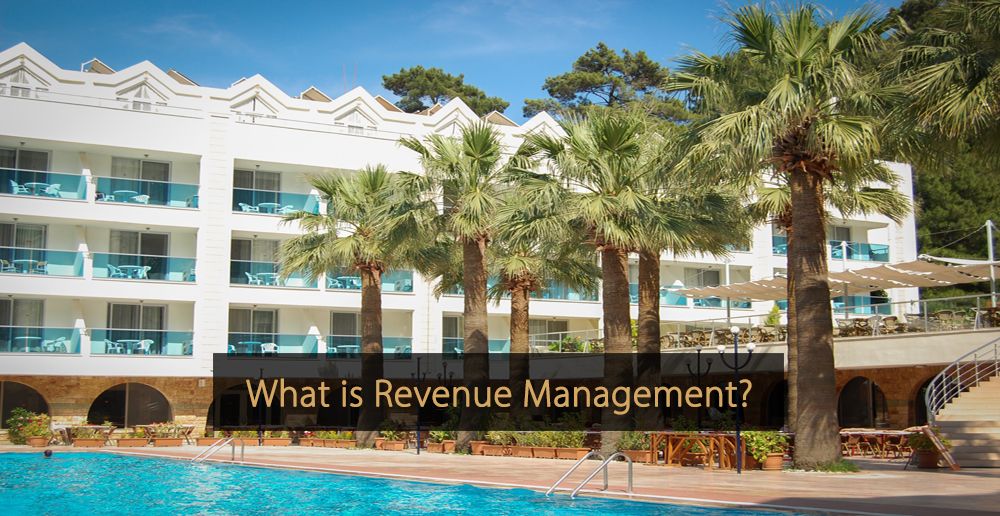
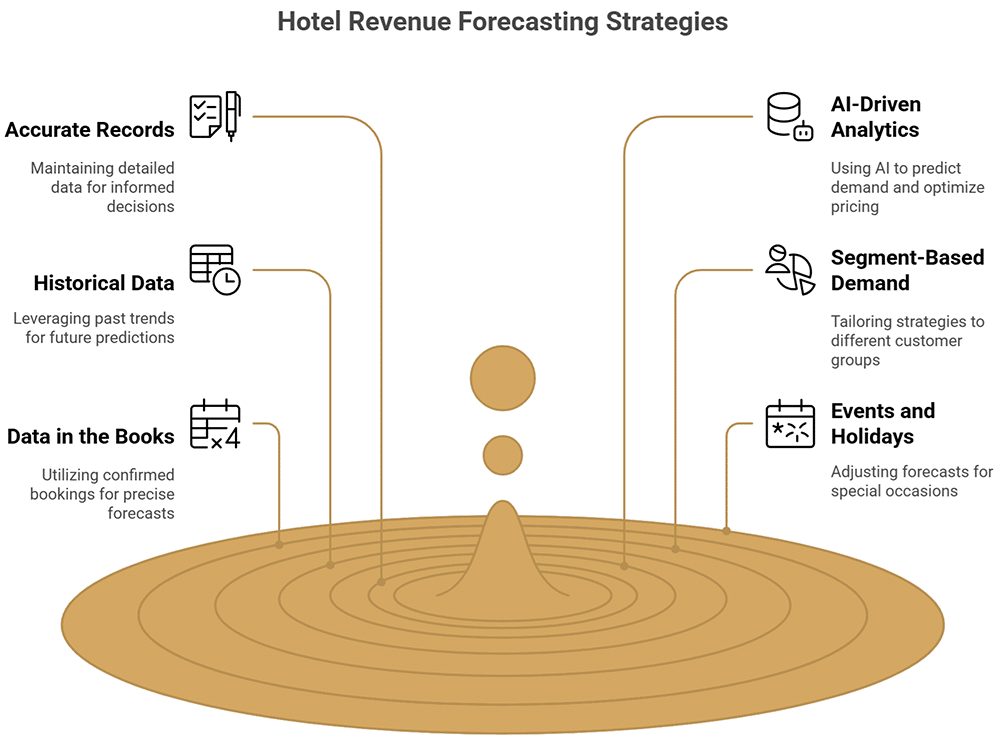
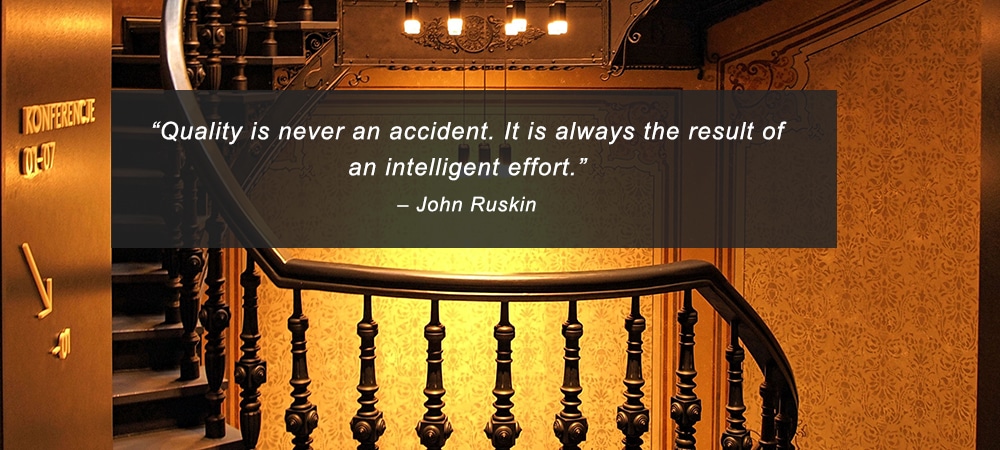

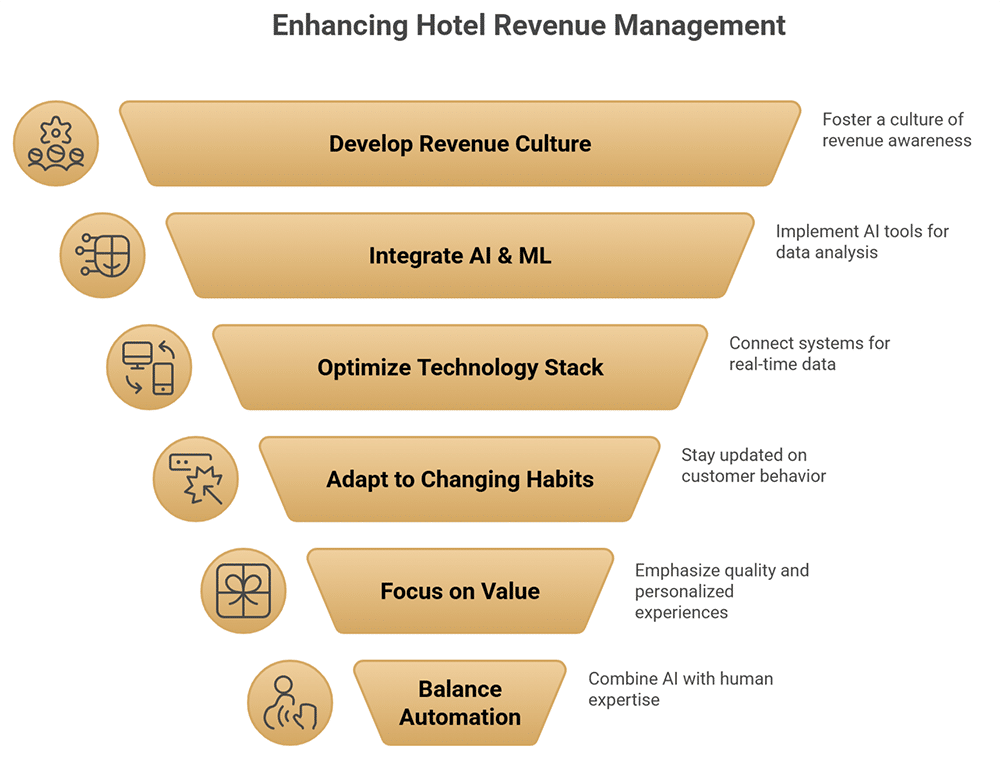





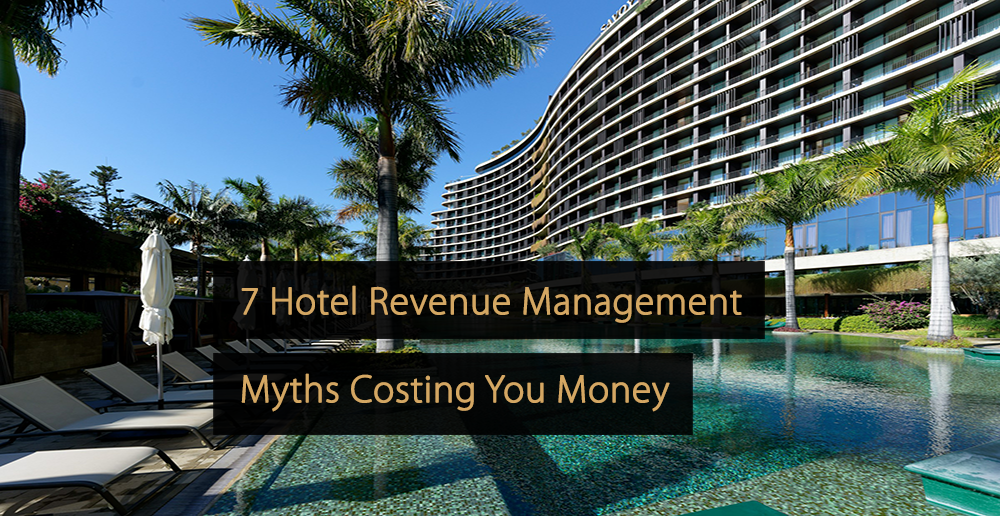
When researching the term Revenue Management, I came across your resourceful post. You explain it very well and show how revenue management can be beneficial for businesses, especially in the hospitality sector. Thanks for sharing this great post! It has educated me well on the benefits of Revenue Management.